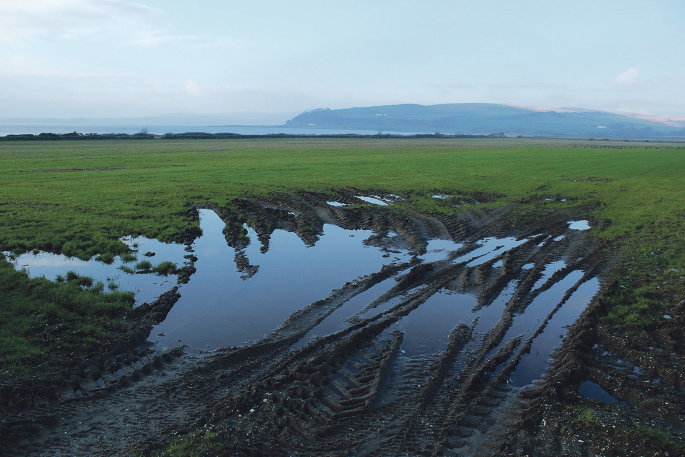Nitrogen plays an important role in increasing pasture and crop yields, helping to fill the feed gaps. When used strategically, nitrogen is effective in synthesis of proteins in both plants and animals. Nitrogen is also an essential component of green pigment (chlorophyll) in plant leaves, which are vital for photosynthesis.
To get the most effective benefit of using nitrogen in farming systems, it is important to understand the nitrogen cycle.
With the coldest months of the year upon us, farmers should be particularly cautious when applying nitrogen fertilisers to pasture or crops during winter.
Winter applications of nitrogen fertilisers are generally least effective for promoting grass growth. That’s because slow growth of pasture in winter and greater drainage can result in nitrate leaching before plants can take it up. The nitrogen can make its way to waterways where it can stimulate nuisance algal growth.
Lactating cows will excrete, in urine, about 70 per cent of the nitrogen they consume. Again, the risk of this nitrogen leaching from urine patches is much higher in winter.
This nitrogen leaching, along with phosphorus run off, not only contaminates waterbodies but is a loss of economically valuable nutrients.
Nutrient budgeting using computer models such as Overseer, combined with feed budgeting, enables farmers to understand if they’re using too much or too little fertiliser. By doing this, farmers can optimise the use of nutrients and reduce the impact on the environment by developing a pragmatic nutrient management plan.
Response rate
Understanding the term ‘response rate’ helps farmers when it comes to implementing these plans.
The response rate is the amount of pasture grown in terms of kilograms of dry matter per hectare per kilogram of nitrogen (N) applied. For example, when 20kg N/ha is applied and an additional 200kg DM/ha of pasture is grown, the response rate is 10kg DM/kg N applied. The response is dependent on several factors such as soil temperature, plant growth, soil moisture, the deficiency of available nitrogen in the soil and the rate of nitrogen applied per application.
The best response to N fertiliser occurs on fast-growing pasture, when other factors such as moisture and soil temperature are not limiting growth. Response rate variation also depends on the season and on nitrogen application rate. In winter, at the same application rate, responses are lower and slower than other times of the year.
It is better to apply nitrogenous fertiliser when the pasture cover is around 1500kg DM/ha. This ensures there is sufficient leaf area for photosynthesis, leading to good pasture growth.
Also, nitrogen fertiliser reduces nitrogen fixation by clover by about 1kg N/ha/year for every 3kg of nitrogen fertiliser applied. In addition, clover content will be further reduced if nitrogen-boosted pastures shade the clover. This effect is seen during spring.
Feed deficits
Remember the profitability of applying nitrogen is dependent on the utilisation of the extra feed. Therefore, nitrogen needs to be strategically applied to fill genuine feed deficits.
Nitrogen conversion efficiency for any farm is another key point to be remembered. This is measured by calculating total nitrogen in product divided by the total nitrogen inputs into a farm and is expressed as a percentage. A dairy farm, for example, is probably doing fine with about 40 per cent.
A number of farmers, as well as industry organisations, are already doing a great job of trying to increase productivity and reduce environmental impacts through more careful use of nutrients. The more we can share information on the best way to do these things, the better.
I suggest getting clear advice about the risks involved with winter nitrogen applications on individual properties.
Bala Tikkisetty is a sustainable agriculture advisor at Waikato Regional Council. Contact him on 0800 800 401 or email: bala.tikkisetty@waikatoregion.govt.nz



0 Comments
Leave a Comment